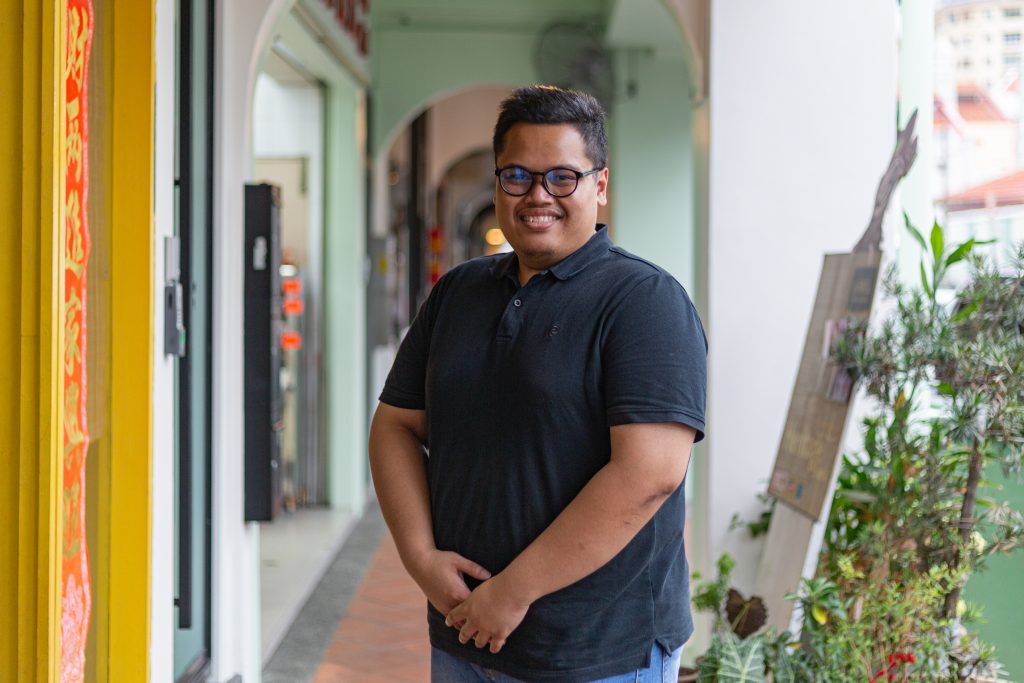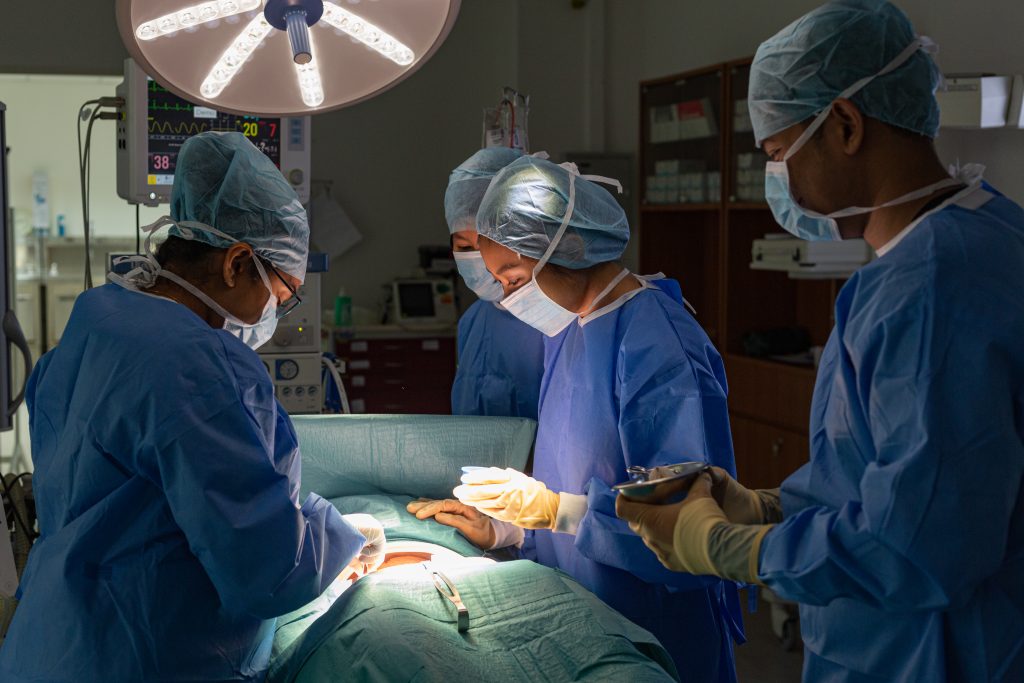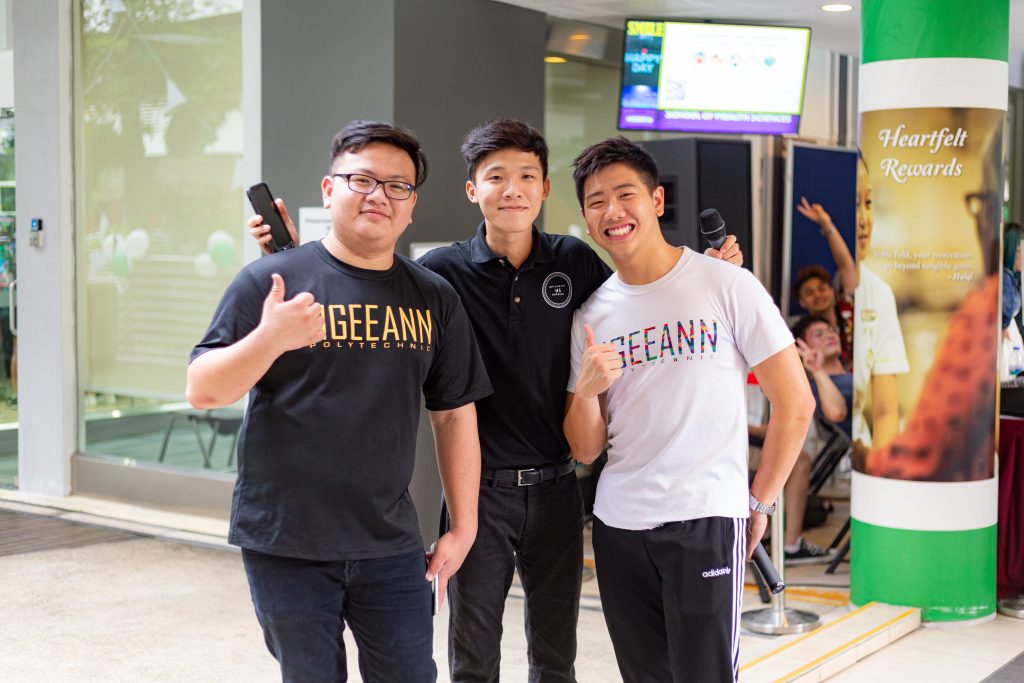
This is Senior Staff Nurse Noor Izhan Arif, 28, from the Singapore General Hospital (SGH). Having been in the nursing industry for 10 years, he has gained a wealth of experience in various roles, from general to critical care nursing. However, despite the nobility of his job, the male nurse is still looked down upon by some.
“Sometimes there’s the older thinking whereby nurses are just there to ‘wipe butt’.”
SGH Senior Staff Nurse Noor Izhan Arif
He first started his career in Nursing after completing his GCE ‘O’ levels. At that time, he had a hard time deciding what to pursue next. His parents, who noted his deep care and concern for people since a young age, advised him to pursue nursing as his interests and personality suited the role.
As such, Mr Izhan enrolled in Nursing at Ngee Ann Polytechnic (NP), after which he pursued an advanced diploma in Nursing (Neuroscience) at Nanyang Polytechnic. Currently, the Curtin University graduate is working in the neurosurgery ward, where patients there deal with brain surgery.
Each shift in the neurosurgery ward consists of about 15 staff, with only 2 to 3 male nurses. Being in a female-dominated environment didn’t affect Mr Izhan much as his organization sees the value of male nurses and have specific roles, such as tending to the hospital’s male clientele.
“For myself, in terms of being given things to do, I didn’t feel left out,” he says. Other than taking direct orders from doctors, Mr Izhan also recommended suggested steps and treatment necessary for his patients.
However, in terms of pay, male nurses fall behind. The Ministry of Manpower (MOM) reports that the income of female nurses was eight per cent higher as compared to their male counterparts in 2018.
In contrast, MOM also reported that men generally enjoy a higher average salary of about estimated 23 per cent as compared to women in Singapore.
But to Mr Izhan, money isn’t the most important thing. He’s just doing the best he can for his patients, “to get them back on their feet”.
SGH Senior Staff Nurse Farah Izyan Lee, 26, explains that one possible reason for the difference in salary could be the higher number of women in more senior positions. In the past, there were more women in nursing than today. Therefore, many top positions, such as the Director of Nursing, are currently being held by female staff who rose up the ranks.
“You rarely see male directors or male nurses holding high positions,” says Ms Farah.
However, times have changed. Though she works with less than 10 male nurses in her ward, Ms Farah knows that more men are entering the trade. “More males are encouraged to take up nursing,” she says.
With the aging population here in Singapore, the healthcare sector needs more men, especially in areas such as rehabilitation where patients may need physical support during exercises. Mental health institutions are also seeking out male nurses for their strength as they are able to handle potentially violent patients better. “Male nurses are still sought for because they are stronger,” Ms Farah explained.

In NP, though the school has seen a steady increase in the number of male nursing students, with 46 more enrolments in 2019 as compared to that in 2014, the ratio of male to female nursing students has remained relatively similar.
Joel Wong Song Ming, 19, is a Year 3 Nursing student from NP currently on his internship with SGH. When asked how he got into nursing, he explained that after obtaining his International General Certificate of Secondary Education (IGSCE), he felt lost. Deciding to apply for multiple scholarships, he was accepted into the Asian Nursing Scholarship (ANS) program.
Looking back, Joel says that he initially felt unsure about his decision to pursue nursing. “It was not something that I didn’t want, but at the same time it was not my dream job,” he says.

Public expectations have also strained him. “People would look at you, they notice you (in public),” says Joel. “Imagine if someone collapses, they expect you to do something.” Nevertheless, Joel kept an open mind and has “no regrets so far”.
“To me, nursing is the responsibility of taking care of someone entrusted to you. It’s knowing at the end of the day you did everything you can,” he says. “You get to help so many people.”
